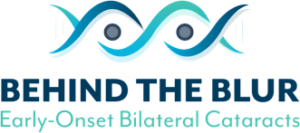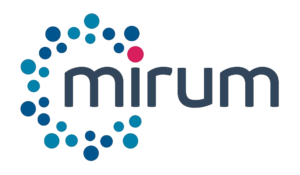Early-onset bilateral cataracts refer to the development of cataracts in both eyes at an earlier age than typically expected. Cataracts involve the clouding of the eye’s natural lens, which impairs vision by obstructing light from properly focusing on the retina. While cataracts are commonly associated with aging, early-onset forms can occur due to a variety of factors, including genetic conditions, metabolic disorders, certain infections, or trauma. In young people, cataracts can significantly affect vision development and quality of life.


Genetic testing plays a critical role in the diagnosis and management of early-onset bilateral cataracts, particularly when these occur as part of a genetic syndrome or are suspected to have a hereditary basis. By identifying specific genetic mutations, testing provides crucial insights into the underlying cause of the cataracts, which can guide treatment decisions and inform prognosis. Additionally, genetic testing can help predict the risk of cataracts and other associated conditions in family members, allowing for early monitoring and intervention. It also aids in distinguishing genetic causes from other potential triggers such as metabolic disorders or environmental factors, thereby enabling more targeted and effective management strategies.
What is the Program?
Mirum Pharmaceuticals has partnered with PreventionGenetics to offer a no-cost genetic testing program to help identify the genetic cause of early onset, often bilateral, cataracts through a 66-gene panel. This program is available for patients in the US who meet eligibility criteria and must be ordered by a qualified healthcare provider.
Patients must meet the criteria below:

Order the test, collect the appropriate specimen, and ship it to the lab.
Program Information
A sponsored testing program for early-onset bilateral cataracts provides genetic testing at no cost to identify genetic mutations that can cause cataracts to develop in both eyes at an unusually young age. This helps in early diagnosis and appropriate management.
Individuals showing symptoms of cataracts at a young age, families with a history of early-onset cataracts, and patients where genetic factors are suspected can benefit from this program to obtain an accurate diagnosis.
Genetic testing identifies specific mutations causing the cataracts, guiding treatment decisions and helping in family planning and risk assessment for other family members.
While the specific genes may vary, genes commonly associated with early-onset cataracts include those involved in lens development such as CRYAA, CRYAB, and CRYGC.
The sponsored testing program typically covers all costs associated with genetic testing for eligible patients, removing financial barriers to accessing this diagnostic service.
Patients can access the program through referrals from healthcare providers, or by applying directly through the program’s website, where eligibility criteria and application procedures are detailed.

Mirum Pharmaceuticals, Inc. is a biopharmaceutical company dedicated to transforming the treatment of rare diseases affecting children and adults. Mirum has three approved medications: LIVMARLI® (maralixibat) oral solution, Cholbam® (cholic acid) capsules, and Chenodal® (chenodiol) tablets.
LIVMARLI, an IBAT inhibitor, is approved for the treatment of cholestatic pruritus in patients with Alagille syndrome in the U.S. (three months and older), in Europe (two months and older), and in Canada. Mirum has also submitted LIVMARLI for approval in the U.S. in cholestatic pruritus in PFIC patients three months of age and older and in Europe in PFIC for patients two months of age and older. Cholbam is FDA-approved for the treatment of bile acid synthesis disorders due to single enzyme defects and adjunctive treatment of peroxisomal disorders in patients who show signs or symptoms or liver disease. Chenodal has received medical necessity recognition by the FDA to treat patients with cerebrotendinous xanthomatosis (CTX).
Mirum’s late-stage pipeline includes two investigational treatments for debilitating liver diseases. Volixibat, an IBAT inhibitor, is being evaluated in two potentially registrational studies including the Phase 2b VISTAS study for primary sclerosing cholangitis and Phase 2b VANTAGE study for primary biliary cholangitis. Lastly, Chenodal, has been evaluated in a Phase 3 clinical study, RESTORE, to treat patients with CTX, with positive topline results reported in 2023.
To learn more about Mirum, visit mirumpharma.com and follow Mirum on Facebook, LinkedIn, Instagram and Twitter.

LIVMARLI® (maralixibat) is an orally administered, once-daily ileal bile acid transporter (IBAT) inhibitor developed by Mirum Pharmaceuticals. It is approved by the U.S. Food and Drug Administration for the treatment of cholestatic pruritus in patients with Alagille syndrome (ALGS) aged one year and older, and for progressive familial intrahepatic cholestasis (PFIC) in patients five years and older. LIVMARLI works by reducing bile acid levels, alleviating the severe itching associated with these conditions, and improving quality of life for affected patients. It is the only FDA-approved medication for these indications and has also received approvals and positive recommendations in other regions, including Europe and Canada.